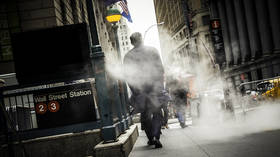Wall Street suffers worst day of 2023

US stock markets suffered extended losses on Tuesday, as investors brace for further key interest rate hikes by the Federal Reserve, following the most recent data on inflation and an unfavorable retail outlook.
According to trading data, the Dow Jones Industrial Average closed nearly 700 points down at 33,129, dropping 2.06% in its worst downturn since December 15. The S&P 500 fell 2%, also its biggest decline since December 15, to close at 3,997. All indices ended lower, while consumer discretionary stocks suffered the steepest drop, 3.3%. The Nasdaq Composite fell by 2.50% to 11,492.
While US stocks initially rallied in early 2023, they have lost momentum amid further rate-hike fears. The market-wide drop came ahead of the Fed’s release of the minutes from its January 31 to February 1 meeting, where the regulator hiked rates by 25 basis points.
The market believes the central bank will raise rates by another 25 basis points when it meets in March, and again in May, but is awaiting the minutes to see what the Fed has to say about its further policy.
Tuesday’s selloff also came after the US’ largest retailer, Walmart, issued a cautious outlook for 2023, with full-year earnings expected to be below earlier estimates amid weaker demand and high prices. Walmart CFO John David Rainey told CNBC that consumers are still “very pressured” and buy fewer discretionary items due to stubbornly high grocery costs.
According to data released last week, inflation somewhat cooled in January, rising at an annual rate of 6.4%, but is still far above the 2% target.
For more stories on economy & finance visit RT's business section












